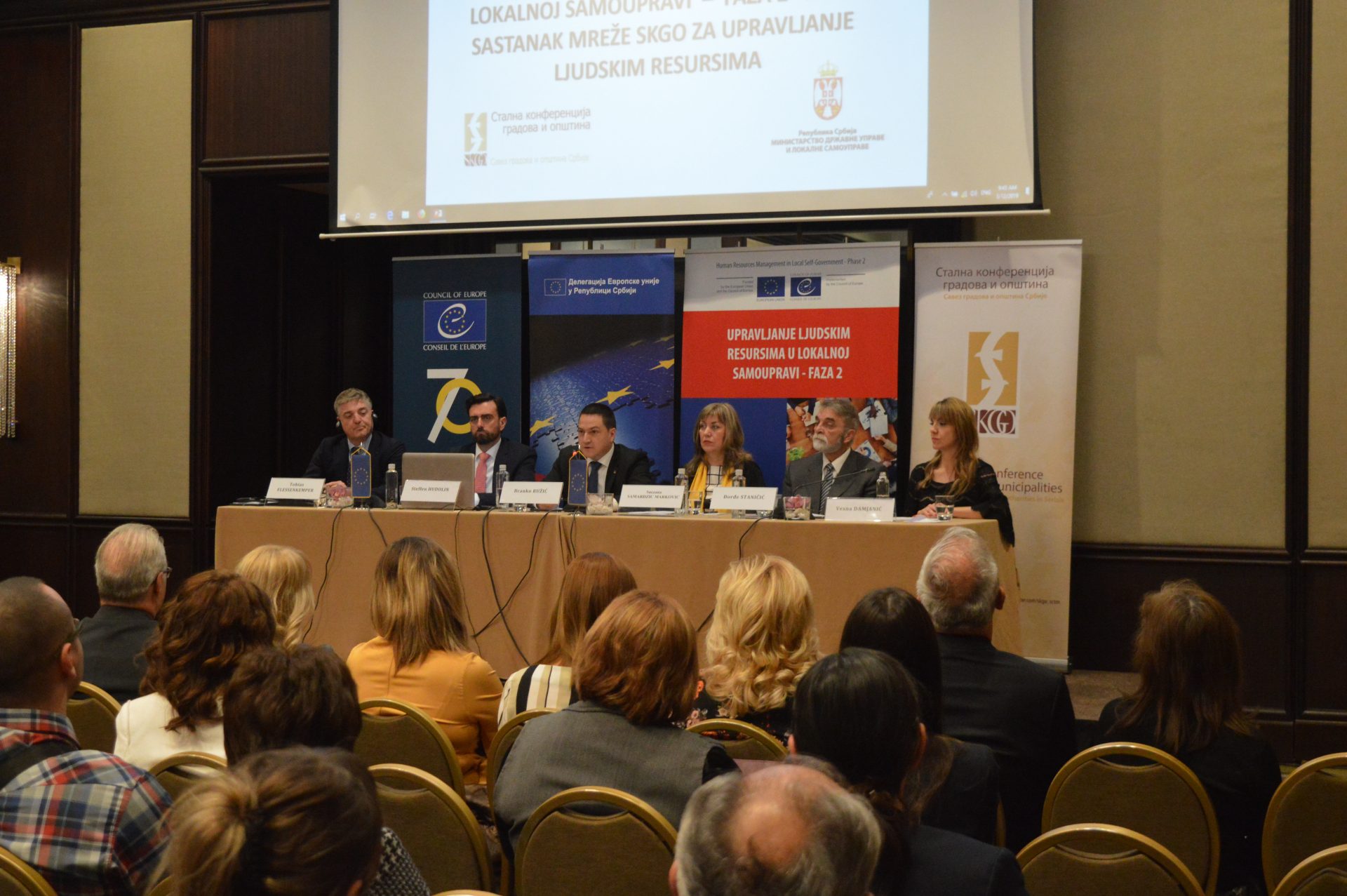
The Minister of Public Administration and Local Self-Government, Branko Ružić, stated that continued support in the human resource management on the local level was important for the creation of a supportive environment and additional motivation for employees.
At the presentation of the second phase of the project “Improvement of Human resources in the Local Self-Government”, financed by EU and Council of Europe, he emphasized that he was grateful that another foundation block was placed for a new administration for citizens.
“Public administration reform did not entail short-term, superficial changes. We were determined to analyse every part of the system, to suggest modifications and get on with the work. Of course, changes are so demanding and complex, having regard to the fact that the public administration system entails a little less than 500,000 civil servants and includes all national, provincial and local authorities and public agencies, naturally excluding public enterprises”, said Ružić.
He emphasized that this reform was highly rated according to criteria for EU accession, and thanked the European Union and the Council of Europe and the non-governmental sector – particularly SCTM – for providing support in this process.
Ružić stated that investments in civil servants was certainly the best possible legacy, and that the reform should focus on is driving force, the people.
“I call upon you to make a good use of support you receive and take the initiative to move things in the right direction”, said the Minister.
“Improvement of Human resources in the Local Self-Government – Phase II” is a continuation of the project of the same name through which towns and municipalities in Serbia received significant support in the establishment of human resource management and vocational training of local civil servants.
The project is being executed in collaboration with the Council of Europe Office in Belgrade, the Ministry of Public Administration and Local Self-Government and the Standing Conference of Towns and Municipalities.



